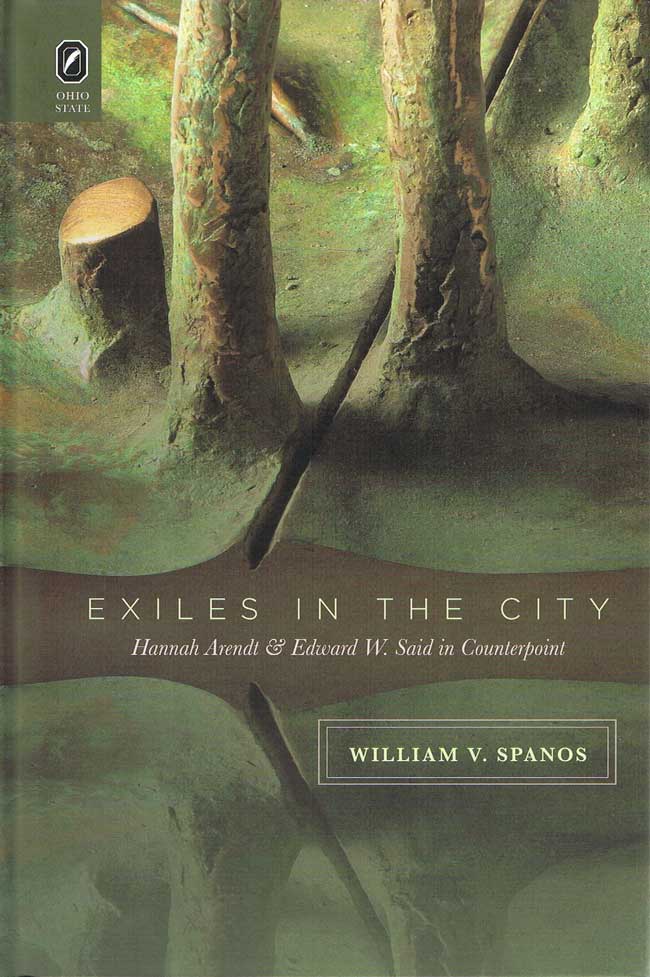Exiles in the CityHannah Arendt and Edward W. Said in CounterpointWilliam V. Spanos |
 7/18/2012 Literary Criticism/General; Philosophy/General 266 pp. 6x9  $62.95 cloth 978-0-8142-1193-9 Add cloth to shopping cart $14.95 CD 978-0-8142-9294-5 Add CD to shopping cart Shopping Cart Instructions Review/Change Shopping Cart & Check-out | |||
|
“By focusing on themes of exile, the secular, and the modern city, William V. Spanos interweaves his chapters into a compelling portrait of Arendt and Said as unified, in the counterpoint of their critical differences, with each other and the traditions out of which they develop. Spanos is a major critic and his bringing together of Said and Arendt is original and powerful.” —Daniel T. O’Hara, Andrew W. Mellon Term Professor in the Humanities, Temple University “This is an important and groundbreaking work. William V. Spanos positions himself astutely as a poststructuralist humanist (for many, an untenable position) and from this locus reads the politics of secular humanism as simultaneously ontological and political. The arguments on behalf of exilic consciousness are worked out by way of Said and Arendt, and the complex positions taken by these authors are interpreted and contextualized from a sophisticated theoretical perspective that blends the progressive politics of humanism with the theoretical rigor of poststructuralist critique. Once again, Spanos demonstrates his mastery of the theory-critique nexus.” —Rajagopalan Radhakrishnan, Chancellor’s Professor of English and Comparative Literature, University of California, Irvine Exiles in the City: Hannah Arendt and Edward W. Said in Counterpoint, by William V. Spanos, explores the affiliative relationship between Arendt’s and Said’s thought, not simply their mutual emphasis on the importance of the exilic consciousness in an age characterized by the decline of the nation-state and the rise of globalization, but also on the oppositional politics that a displaced consciousness enables. The pairing of these two extraordinary intellectuals is unusual and controversial because of their ethnic identities. In radically secularizing their comportment towards being, their exilic condition enabled them to undertake inaugural critiques of the culture of the nation-state system of Western modernity. As variations on the theme of exile, the five chapters of this book constitute reflections on what is foundational and abiding in both Arendt’s and Said’s work. They not only document the heretofore unnoticed affiliation between the two thinkers. They also shed light on Arendt’s and Said’s proleptic activist explorations of the urgent “question of Palestine,” especially on the fraught present situation, which bears increasing witness to the irony that the Israeli nation-state’s “solution” has, from the beginning, systematically repeated the degradations the Jewish people suffered at the hands of German nationalism. William V. Spanos is Distinguished Professor of English and Comparative Literature at Binghamton University, SUNY. | ||||

